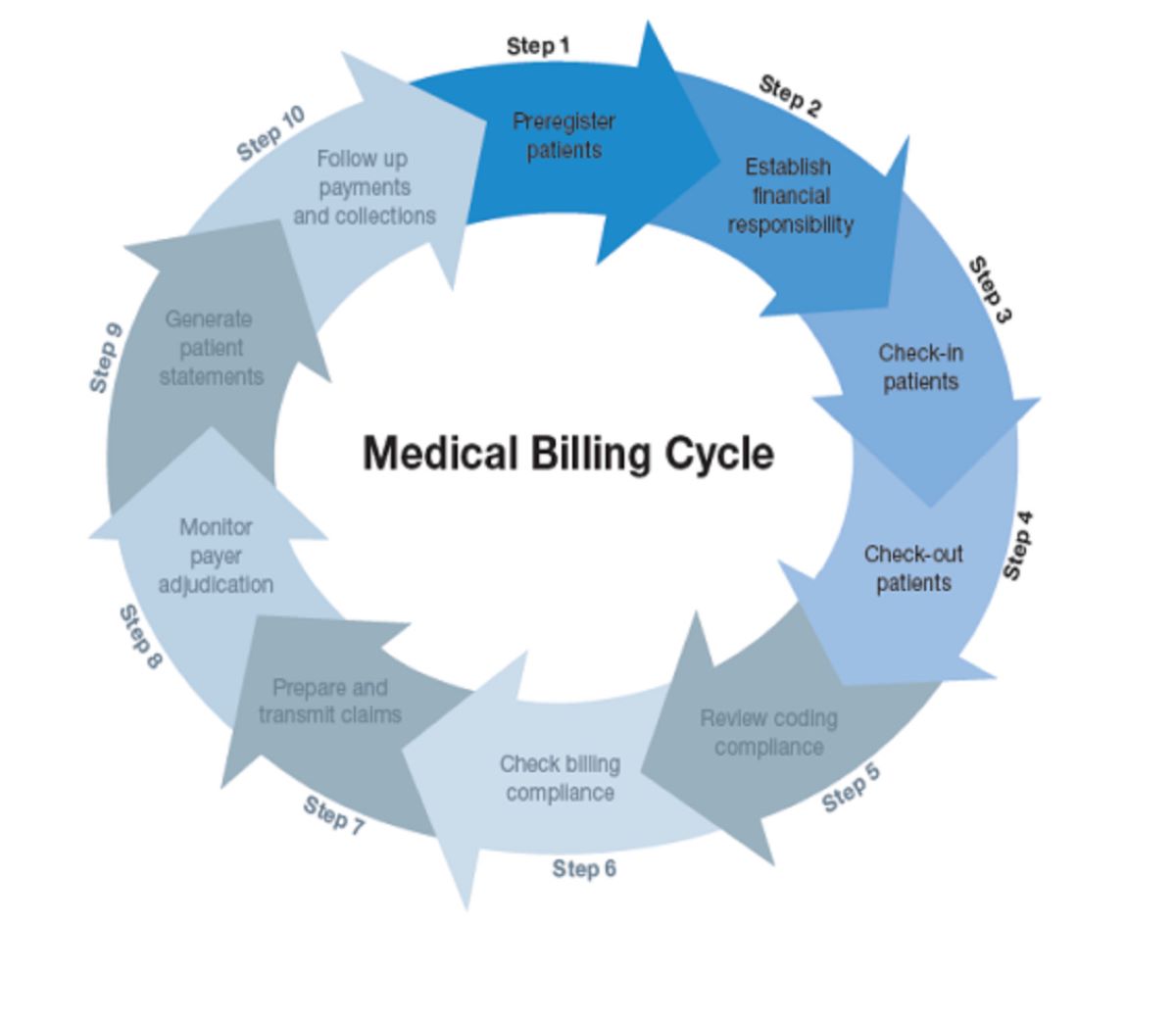Home>Finance>What Is The Income Limit For Medicare Savings Program


Finance
What Is The Income Limit For Medicare Savings Program
Published: January 15, 2024
Find out the income limit for the Medicare Savings Program and secure your financial future with this comprehensive finance guide.
(Many of the links in this article redirect to a specific reviewed product. Your purchase of these products through affiliate links helps to generate commission for LiveWell, at no extra cost. Learn more)
Table of Contents
Introduction
The Medicare Savings Program (MSP) is a valuable assistance program designed to help individuals with limited income pay for their Medicare premiums and out-of-pocket expenses. This program provides financial relief to eligible beneficiaries, ensuring that they can access the healthcare services they need without incurring a significant financial burden.
Medicare can be a lifeline for many seniors and individuals with disabilities, providing essential medical coverage. However, the costs associated with Medicare can add up quickly, especially for those on fixed or limited incomes. That’s where the Medicare Savings Program comes in.
The MSP is not the same as Medicaid, although they share similar objectives. While Medicaid is a joint federal and state program that provides comprehensive healthcare coverage for individuals with low income, the Medicare Savings Program specifically focuses on helping Medicare beneficiaries afford their healthcare expenses.
In this article, we will delve deeper into the various aspects of the Medicare Savings Program, including the types of programs available, the income limits associated with eligibility, how to qualify, the application process, and the advantages of participating in the program.
By understanding how the Medicare Savings Program works and who can benefit from it, you can make informed decisions about your healthcare options and potentially alleviate some of the financial strain associated with Medicare.
Understanding the Medicare Savings Program
The Medicare Savings Program (MSP) is a crucial initiative that provides financial assistance to Medicare beneficiaries. It helps individuals with limited income and resources afford their Medicare premiums and out-of-pocket expenses, ensuring they can access the healthcare services they need without facing excessive financial strain.
It is important to understand that the Medicare Savings Program is not a standalone healthcare plan. Rather, it operates as a program that helps offset the costs associated with Medicare. Participants in the MSP still receive their Medicare benefits and continue to have access to the same coverage and services.
The MSP is administered at the state level, meaning the eligibility requirements and coverage options can vary slightly from one state to another. However, the general objective remains the same: to assist individuals in paying for their Medicare expenses and improving their access to healthcare.
By participating in the Medicare Savings Program, eligible beneficiaries can significantly reduce their healthcare costs, making it easier to afford the necessary medical services, prescriptions, and treatments. This financial assistance is especially valuable for those living on fixed or limited incomes, as it helps alleviate the financial burden associated with healthcare expenses.
It is important to note that the Medicare Savings Program is not just for Medicare Part A or Part B beneficiaries. It also includes programs that assist with prescription drug costs (Medicare Part D) and provides additional benefits for Medicare Advantage plan members.
In the next sections, we will explore the different types of Medicare Savings Programs available and delve into the specific eligibility criteria and income limits associated with each program. By understanding these details, you can determine if you qualify for assistance and how the MSP can potentially benefit you.
Types of Medicare Savings Programs
The Medicare Savings Program offers different types of assistance programs to eligible beneficiaries. These programs vary in terms of the benefits they provide and the criteria for eligibility. Let’s take a closer look at the different types of Medicare Savings Programs available:
- Qualified Medicare Beneficiary (QMB) Program: This program covers Medicare Part A and Part B premiums, deductibles, coinsurance, and copayments. QMB recipients are also protected from being billed for Medicare costs that are not covered by Medicare or the QMB program.
- Specified Low-Income Medicare Beneficiary (SLMB) Program: The SLMB program helps individuals with limited income pay for their Medicare Part B premiums. This program does not provide coverage for Medicare Part A premiums, deductibles, coinsurance, or copayments.
- Qualifying Individual (QI) Program: The QI program is similar to the SLMB program in that it assists with Medicare Part B premiums. However, funding is limited, and it operates on a first-come, first-serve basis. Once the funds are depleted, no more applications can be accepted.
- Qualified Disabled and Working Individuals (QDWI) Program: The QDWI program is specifically designed for disabled individuals who have returned to work and lost their premium-free Part A coverage. It helps pay for the Part A premiums.
These different programs cater to specific categories of eligible beneficiaries and provide varying levels of financial assistance. It is important to review the specific criteria for each program to determine which one you may qualify for and which one best meets your needs.
If you are eligible for any of these Medicare Savings Programs, it can significantly reduce your healthcare costs, making it more affordable to receive the necessary medical care and prescriptions. Understanding the different programs available and their specific benefits is vital in maximizing the assistance you can receive.
Income Limit for Medicare Savings Program
The income limit is a crucial factor in determining eligibility for the Medicare Savings Program (MSP). Each type of program within the MSP has its own specific income thresholds. These limits are set by the federal government, but they may vary slightly from state to state due to cost-of-living adjustments.
Let’s discuss the general income limits for each type of Medicare Savings Program:
- Qualified Medicare Beneficiary (QMB) Program: The QMB program typically has the highest income limits among the different MSP programs. In 2021, the income limit for an individual is set at around $1,094 per month and $1,472 for a married couple. These limits ensure that individuals and couples with limited income still have access to the benefits provided by the program.
- Specified Low-Income Medicare Beneficiary (SLMB) Program: The income limits for the SLMB program are slightly higher than those for QMB. For 2021, the income limit for an individual is set at around $1,308 per month and $1,762 for a married couple. Individuals who exceed the QMB income limits but meet the criteria for SLMB may still qualify for this program.
- Qualifying Individual (QI) Program: The QI program also has higher income limits compared to QMB and SLMB. The income limit for an individual is set at around $1,469 per month and $1,980 for a married couple. However, it is important to note that the QI program has limited funding, and once the funds are depleted, no further applications can be accepted.
- Qualified Disabled and Working Individuals (QDWI) Program: The QDWI program has slightly different income limits. To qualify for this program, an individual’s income must be below $4,452 per month, while the income limit for a married couple is set at around $6,084 per month. This program is specifically designed for disabled individuals who have returned to work and no longer receive premium-free Part A coverage.
It is essential to keep in mind that these income limits are subject to change annually. Therefore, it is wise to verify the current income limits in your state before applying for the Medicare Savings Program.
If your income exceeds the limits for any of the above programs, you may still be eligible for other forms of assistance or discounts. It is recommended to consult with your state’s Medicaid office or a Medicare counselor to explore other available options based on your specific financial situation.
Qualifying for the Medicare Savings Program
Qualifying for the Medicare Savings Program (MSP) requires meeting specific eligibility criteria set by the federal government. While the income limit is a significant factor, other requirements must also be fulfilled. Here are the general qualifications to be eligible for the MSP:
- Medicare Enrollment: To be eligible for the MSP, you must already be enrolled in Medicare Part A and/or Part B. Without Medicare coverage, you cannot participate in the program.
- Residency: You must be a U.S. citizen or a legal resident who has resided in the United States for at least five consecutive years. The MSP is generally available to individuals residing in the United States, including the District of Columbia and the U.S. territories.
- Income: As mentioned earlier, each type of MSP program has its own income limits. Your income must fall within these limits to qualify for the specific program you are applying for. Keep in mind that the income limits may vary slightly from state to state due to cost-of-living adjustments.
- Resources: In addition to income, the MSP also takes into account your available resources, such as savings accounts, stocks, bonds, and property. The limit for countable resources is generally set at $7,970 for an individual and $11,960 for a married couple. However, certain assets, such as your primary residence, personal belongings, and one vehicle, are usually exempt from consideration.
It is important to note that meeting these eligibility requirements does not guarantee automatic enrollment in the Medicare Savings Program. Once you determine that you meet the criteria, you must apply through your state’s Medicaid office or the Social Security Administration. The application process involves providing documentation to verify your income, resources, and other eligibility factors.
In some instances, states may have additional requirements or offer variations of the MSP. It is advisable to contact your state’s Medicaid office or a Medicare counselor to gather information specific to your location and circumstances.
Ensuring that you meet all the eligibility requirements for the Medicare Savings Program is essential in receiving the financial assistance you need to mitigate the cost of Medicare premiums and out-of-pocket expenses.
Applying for the Medicare Savings Program
Applying for the Medicare Savings Program (MSP) requires completing an application through your state’s Medicaid office or the Social Security Administration. The application process is straightforward and typically involves the following steps:
- Gather Required Documentation: Before starting the application, gather the necessary documentation to support your eligibility. This may include proof of identity, Medicare enrollment, income verification (such as recent tax returns, pay stubs, or benefit statements), and documentation of your available resources.
- Contact Your State’s Medicaid Office: Reach out to your state’s Medicaid office to request an application form for the MSP. You can usually find the contact information on your state’s Medicaid website or by calling their toll-free number.
- Complete the Application: Fill out the application form with accurate and up-to-date information. Be sure to include any necessary documentation or attachments as requested. Pay attention to the instructions provided to ensure your application is completed correctly.
- Submit the Application: Once you have completed the application, submit it to your state’s Medicaid office either by mail, in-person, or through their online portal, depending on the options available in your state. Ensure that you keep copies of any documents for your own records.
- Follow Up with Medicaid Office: After submitting your application, it is advisable to follow up with the Medicaid office to confirm they have received it and to inquire about the status of your application. This will allow you to address any issues or provide any additional information promptly, if needed.
- Be Patient: The processing time for MSP applications can vary depending on your state’s Medicaid office workload. It is important to be patient during this process and avoid any unnecessary stress. If approved, any benefits you qualify for will typically be retroactive to the date of your application.
If you need assistance or have questions during the application process, consider reaching out to a Medicare counselor or your local State Health Insurance Assistance Program (SHIP) office. These resources can provide guidance, answer your questions, and help ensure your application is completed accurately and submitted on time.
Remember, it is essential to apply for the MSP if you meet the eligibility criteria. By doing so, you can access valuable financial assistance that can significantly reduce your Medicare-related expenses, making healthcare more affordable for you.
Benefits of the Medicare Savings Program
The Medicare Savings Program (MSP) offers several significant benefits to eligible individuals, providing much-needed financial assistance to help alleviate the costs associated with Medicare coverage. Here are some of the key advantages of participating in the MSP:
- Financial Relief: The primary benefit of the MSP is the financial relief it provides. Depending on the program you qualify for, the MSP can cover various Medicare expenses such as premiums, deductibles, coinsurance, and copayments. This assistance can significantly reduce your out-of-pocket healthcare costs, making it more affordable to access essential medical services and medications.
- Improved Access to Healthcare: By reducing your financial burden, the MSP helps ensure that you have improved access to healthcare services. With lower costs for premiums and other Medicare expenses, you can seek necessary medical care without worrying about the affordability. This increased accessibility can lead to better overall health outcomes.
- Prescription Drug Coverage: Some MSP programs offer assistance with prescription drug costs, including coverage for Medicare Part D. This benefit can be particularly valuable for individuals who rely on multiple medications to manage chronic conditions. It helps make prescription drugs more affordable and allows beneficiaries to comply with their prescribed treatment plans.
- Protection Against Excessive Billing: When enrolled in the Qualified Medicare Beneficiary (QMB) program, beneficiaries are protected from being billed for Medicare costs that are not covered by Medicare or the QMB program. This protection helps prevent unexpected medical bills and ensures peace of mind when utilizing healthcare services.
- Retaining Savings: By reducing your healthcare expenses through the MSP, you can retain more of your income and savings for other essential needs, such as housing, utilities, food, and other living expenses. This provides a greater level of financial security and flexibility in managing your overall budget.
- Access to Additional Programs: Participating in the MSP may also make you eligible for additional state or federal assistance programs. These programs can provide further support in areas such as food assistance, housing assistance, energy assistance, and other essential services, contributing to a more comprehensive safety net.
The benefits provided by the Medicare Savings Program can vary depending on the specific program you qualify for and the rules of your state. It is important to review the details of the program you are considering to understand the precise benefits and how they align with your healthcare needs and financial situation.
By taking advantage of the Medicare Savings Program, eligible individuals can significantly reduce their healthcare costs, gain access to necessary medical services and prescription drugs, and experience greater financial stability and peace of mind as they navigate their Medicare coverage.
Conclusion
The Medicare Savings Program (MSP) is an invaluable resource for individuals with limited income who need assistance in paying for their Medicare premiums and out-of-pocket expenses. By understanding the different types of programs available, the income limits for eligibility, and the application process, you can take advantage of this program and experience the benefits it offers.
Participating in the MSP can provide financial relief, improved access to healthcare services, and assistance with prescription drug costs. It helps alleviate the burden of healthcare expenses and ensures that eligible individuals can receive the necessary medical care without sacrificing their financial stability.
To determine if you qualify for the MSP, it is important to meet the eligibility requirements, including enrollment in Medicare and meeting the income and resource limits. Applying for the program through your state’s Medicaid office or the Social Security Administration is a straightforward process, and it is advisable to gather all the necessary documentation and follow up with the relevant agency to ensure your application is processed promptly.
By participating in the MSP, you not only gain financial assistance but also potential access to other state or federal assistance programs that can provide further support and resources. The MSP offers a comprehensive approach to addressing the healthcare needs of individuals with limited income.
Remember to stay informed about any changes in income limits or eligibility criteria, as these may vary annually or vary from state to state. Stay proactive in managing your healthcare coverage and make use of available resources such as Medicare counselors or the State Health Insurance Assistance Program (SHIP) to navigate the application process and understand your options.
In conclusion, the Medicare Savings Program can be a lifeline for individuals who need help in affording their Medicare costs. It is an essential program that ensures access to necessary healthcare services without compromising financial stability. Don’t hesitate to explore your eligibility for the Medicare Savings Program and take advantage of this valuable support system.














